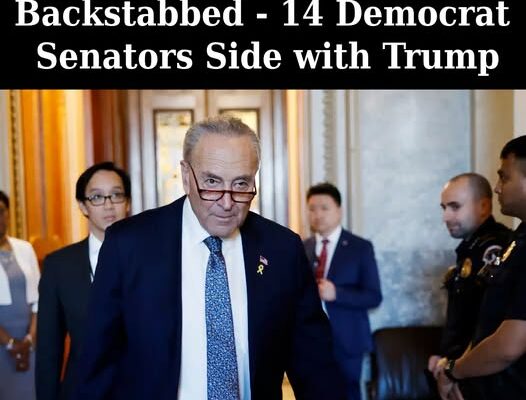In a significant display of bipartisan cooperation amid an otherwise polarized political landscape, more than a dozen Democratic senators crossed party lines on Monday to confirm President Donald Trump’s latest high-profile nominee. The Senate voted 64-27 to advance former Republican Senator David Perdue of Georgia as the new U.S. Ambassador to China, securing the crucial diplomatic post at a time of heightened tensions with the world’s second-largest economy. This rare moment of cross-party support comes as new polling indicates the Democratic Party continues to lose ground with a demographic once considered its reliable stronghold—young voters—raising questions about the party’s future leadership and messaging strategy.
Perdue Confirmation: A Bipartisan Moment in Polarized Times
The Senate’s confirmation of David Perdue represents an unusual moment of consensus in today’s sharply divided Congress. The cloture vote, which requires a 60-vote threshold to overcome potential filibuster attempts, saw significant Democratic support despite Perdue’s Republican background and close ties to President Trump. This bipartisan backing underscores the broad recognition of China’s critical importance to U.S. foreign policy, trade relations, and national security concerns.
Perdue, who represented Georgia in the Senate from 2015 to 2021, brings substantial business experience to the role, having served as CEO of Dollar General and in senior positions at companies including Reebok and Sara Lee before entering politics. His supporters argue this business background positions him well to navigate the complex economic relationship between the United States and China, particularly as trade tensions and supply chain concerns remain at the forefront of bilateral relations.
“Ambassador Perdue’s extensive business experience and understanding of international markets will be invaluable as we work to reset our trade relationship with China,” said Senator Tim Scott (R-South Carolina) during floor debate. “This isn’t about partisan politics—it’s about having the right person to represent American interests in Beijing during a pivotal moment in U.S.-China relations.”
The bipartisan support for Perdue comes despite his previously close alignment with Trump’s policies and his 2022 primary challenge against incumbent Republican Governor Brian Kemp of Georgia—a race in which Perdue had Trump’s enthusiastic backing. That unsuccessful gubernatorial bid came after Kemp refused to support Trump’s efforts to contest the 2020 election results in Georgia, creating a rift within the state’s Republican Party.
Democratic senators who supported Perdue’s confirmation emphasized the need for stable diplomatic representation in Beijing, particularly given heightened tensions over Taiwan, technology competition, and ongoing trade disputes. Senator Mark Warner (D-Virginia), who chairs the Intelligence Committee, noted: “While I’ve had policy disagreements with Mr. Perdue in the past, the ambassador to China is too important a position to leave vacant. His business acumen and familiarity with international markets make him qualified for this specific role.”
The confirmation process wasn’t without controversy, however. During his confirmation hearings, Perdue faced pointed questions from several Democratic senators about his positions on human rights in China, particularly regarding the treatment of Uyghur Muslims in Xinjiang and pro-democracy advocates in Hong Kong. Some progressive groups had urged Democrats to oppose the nomination, citing concerns about Perdue’s potential approach to these sensitive human rights issues.
Senate Foreign Relations Committee Chair Ben Cardin (D-Maryland) ultimately supported the nomination but emphasized expectations for Perdue’s performance: “I expect Ambassador Perdue to forcefully advocate for American values, including human rights and democratic principles, even when those conversations are difficult. The committee will be conducting robust oversight of his performance in this critical role.”
A Generational Shift: Democrats’ Eroding Youth Support
As Senate Democrats demonstrated willingness to work across the aisle on diplomatic appointments, new polling data revealed troubling trends for the party among young voters—a demographic that has been crucial to Democratic electoral success in recent cycles.
A newly released Harvard Kennedy School’s Institute of Politics survey shows approval of congressional Democrats among voters under 30 has plummeted to just 23 percent, down dramatically from 42 percent in early 2017. This nearly 20-point decline represents one of the most significant drops in youth support for the party in recent history and comes at a time when young voters are increasingly critical of both major parties.
Perhaps more concerning for Democratic strategists, the poll shows Republicans now slightly outperforming Democrats among this age group, with congressional Republicans earning a 29 percent approval rating—unusual for a demographic that has traditionally leaned Democratic in recent decades.
“What we’re seeing is unprecedented,” explained John Della Volpe, Director of Polling at the Harvard Kennedy School Institute of Politics. “Young Americans are expressing frustration with both parties, but the sharper decline in Democratic support reflects elevated expectations that aren’t being met. Many young voters who helped elect Democrats in recent cycles expected more significant progress on issues like climate change, student debt, and healthcare.”
President Trump’s approval rating among young voters stands at 31 percent according to the poll, virtually unchanged from his first term. This stability in Trump’s youth support contrasts sharply with the declining fortunes of congressional Democrats, suggesting that the former president’s messaging may be resonating more consistently with a segment of younger voters than the Democratic Party’s current approach.
Political commentator Brett Cooper, who hosts “The Brett Cooper Show” and focuses on reaching younger audiences, believes the data reflects a fundamental disconnect between Democratic leadership and the concerns of younger generations.
“Democrats are completely out of touch with their voter base,” Cooper said during a recent appearance on Fox News’ “Fox & Friends” program. “They are aging out. We do not want them in Congress anymore on the left and the right.”
Cooper highlighted the age of current Democratic leadership as a particular concern for younger voters seeking representation that understands their lived experiences. “You see members of Congress like Dick [Durbin] who are so old,” she noted, referencing the 79-year-old Illinois senator who recently announced his retirement. “Young people feel unrepresented, and they are fed up.”
The Democratic Party’s Internal Tensions
The declining youth support comes amid what many political observers describe as an intensifying ideological struggle within the Democratic Party. Progressives continue pushing for more ambitious policy changes on issues ranging from climate action to healthcare reform, while moderates—particularly those representing competitive districts—advocate for a more cautious approach focused on kitchen-table economic issues.
Cooper characterized this dynamic as a “tug-of-war” creating a no-win situation for the party. “If they don’t like Donald Trump, then they’re angry that their representatives are not pushing back enough. If they are more common sense in the center, they’re angry with how radical they’ve gotten. They just feel completely left alone,” she explained.
This internal tension manifests in policy debates, messaging strategies, and questions about the party’s leadership pipeline. With President Joe Biden now in his 80s and many senior Democratic leaders in their 70s and beyond, questions about generational change have become increasingly prominent in intra-party discussions.
Democratic strategist Marcus Williams, who has worked on multiple youth outreach campaigns, sees warning signs in the current data. “We’re witnessing what happens when a party takes a key constituency for granted,” Williams told reporters. “Young voters have been essential to Democratic victories since 2008, but the party hasn’t delivered transformative change on the issues that matter most to them—climate, affordability, and a sense that the system is actually working for their generation.”
The challenge appears particularly acute among young men, a demographic subset where Democratic support has eroded most sharply. While young women continue to favor Democrats by modest margins, young men increasingly identify as independent or Republican, creating potential long-term challenges for Democratic coalition-building.
“There’s a perception among many young men that the Democratic Party isn’t speaking to their concerns,” explained Dr. Melissa Harris-Parker, a political scientist specializing in youth voting patterns. “Economic opportunity, educational attainment gaps, and mental health challenges affecting young men aren’t receiving the focused attention some of these voters are seeking, creating an opening for other political messaging to resonate.”



